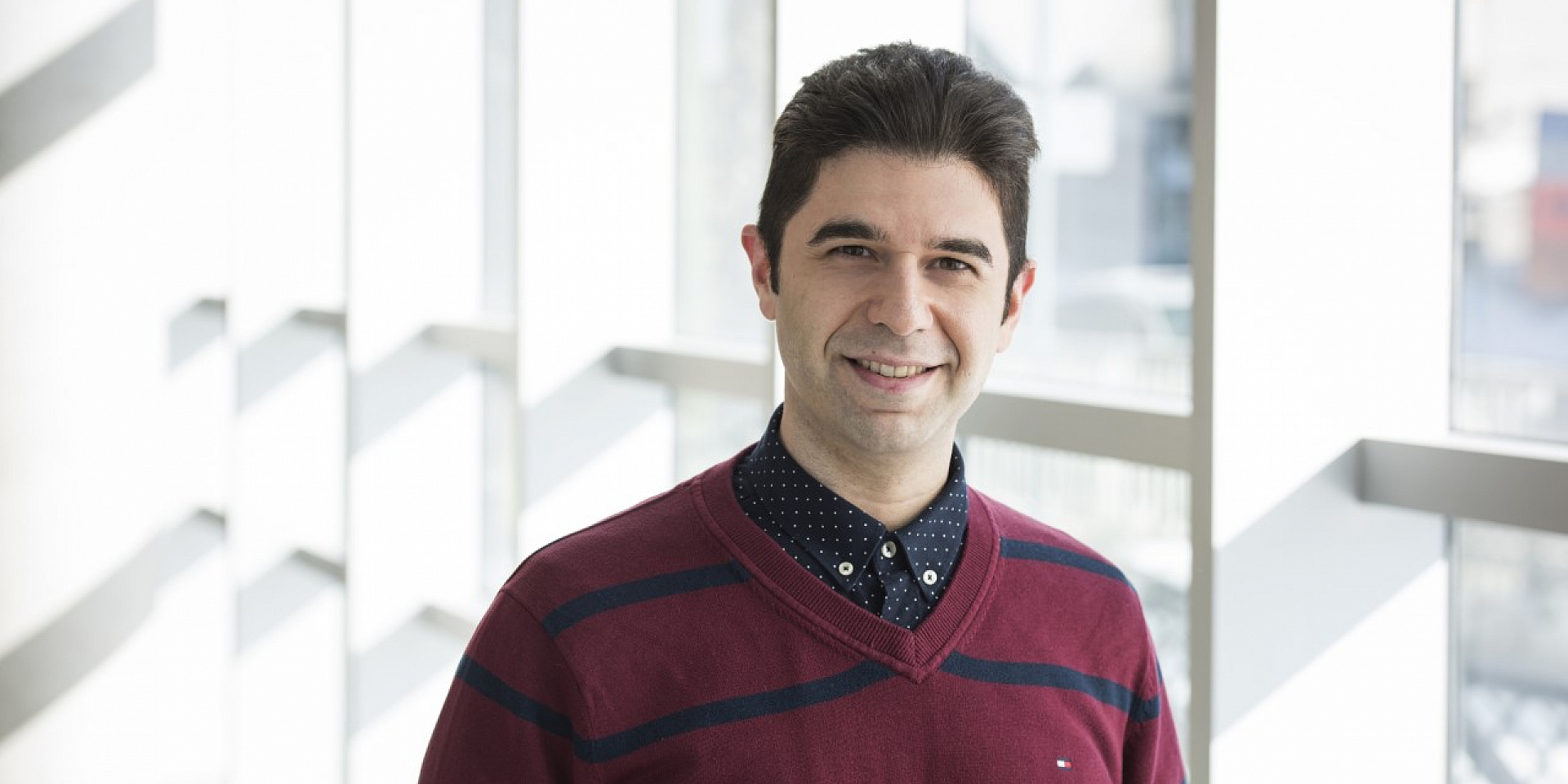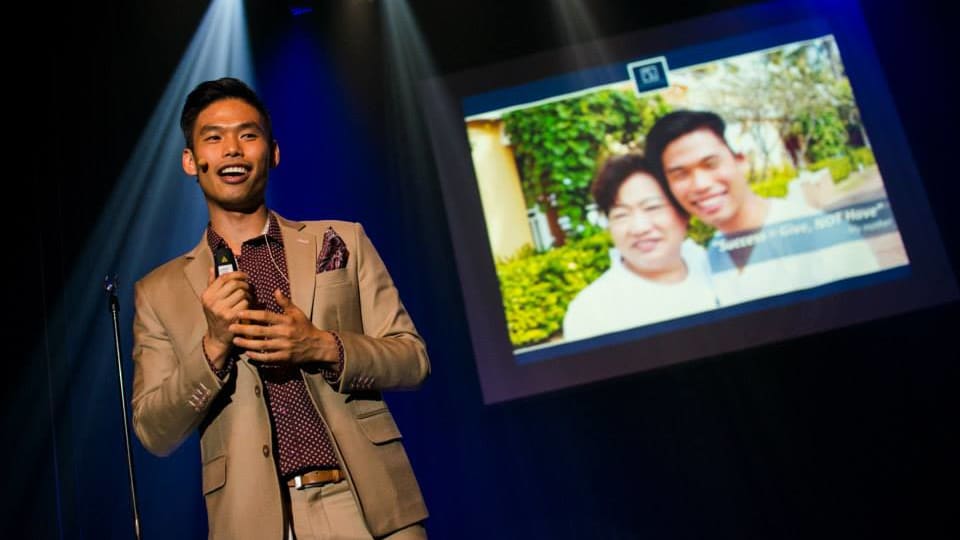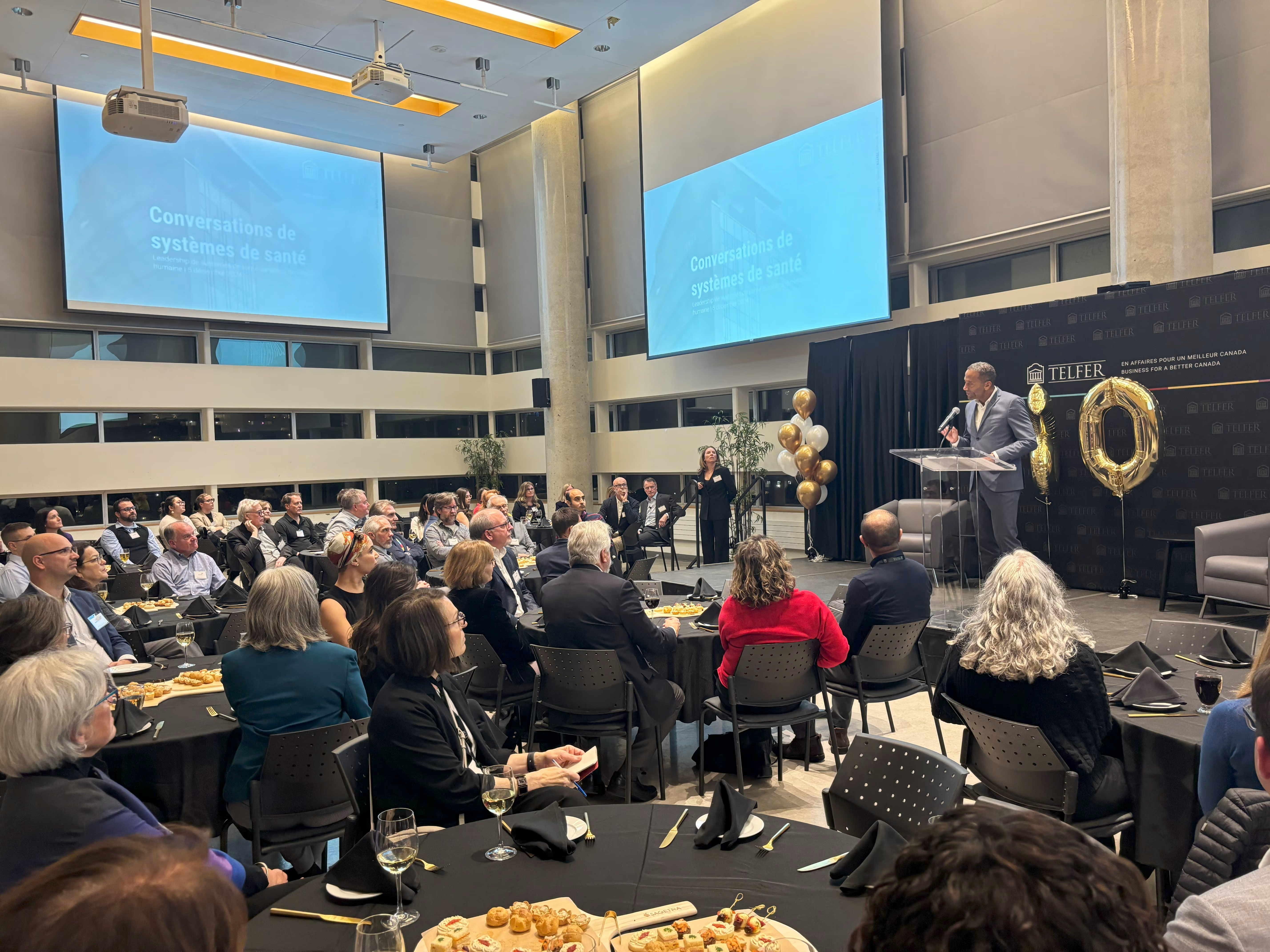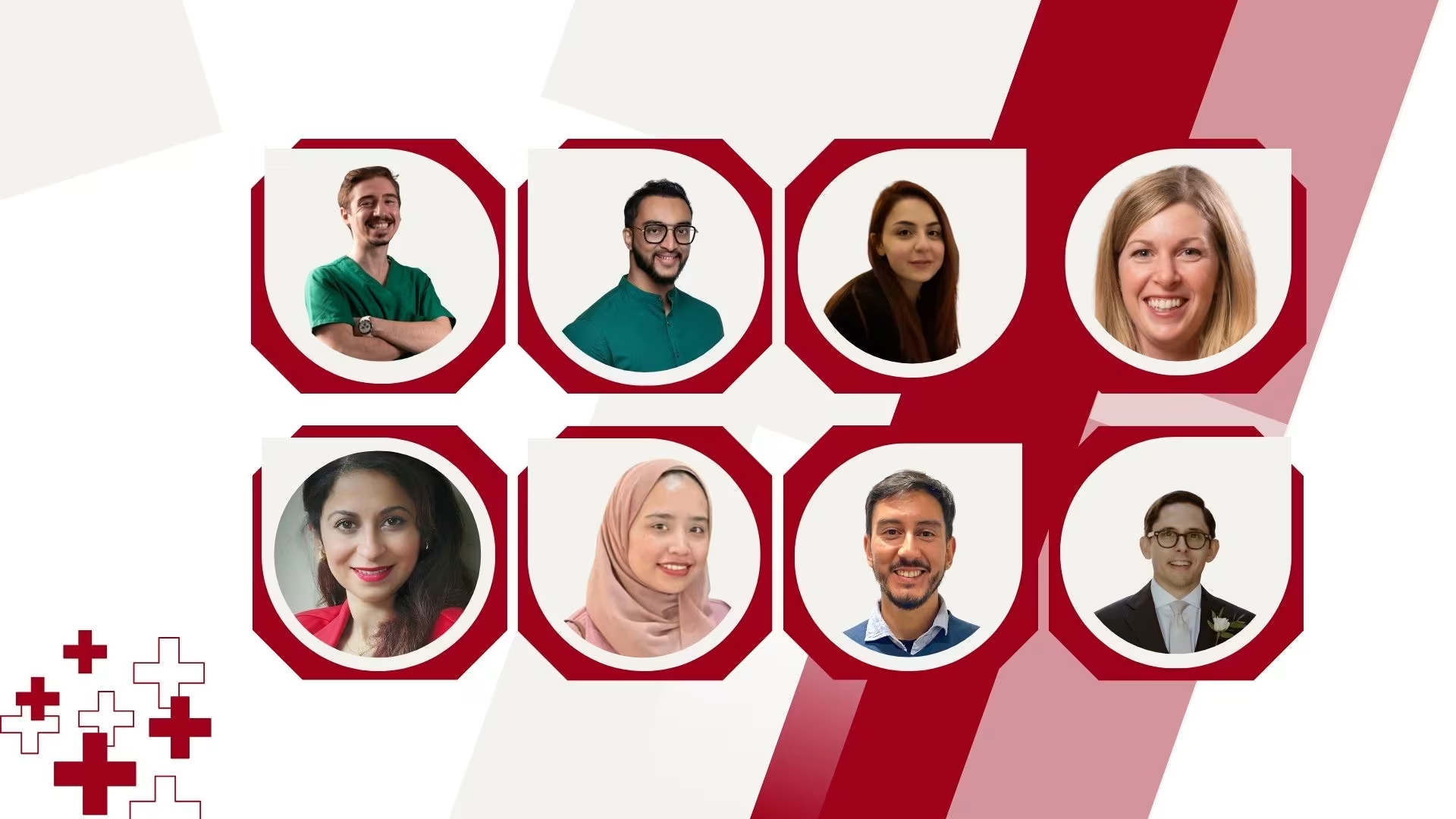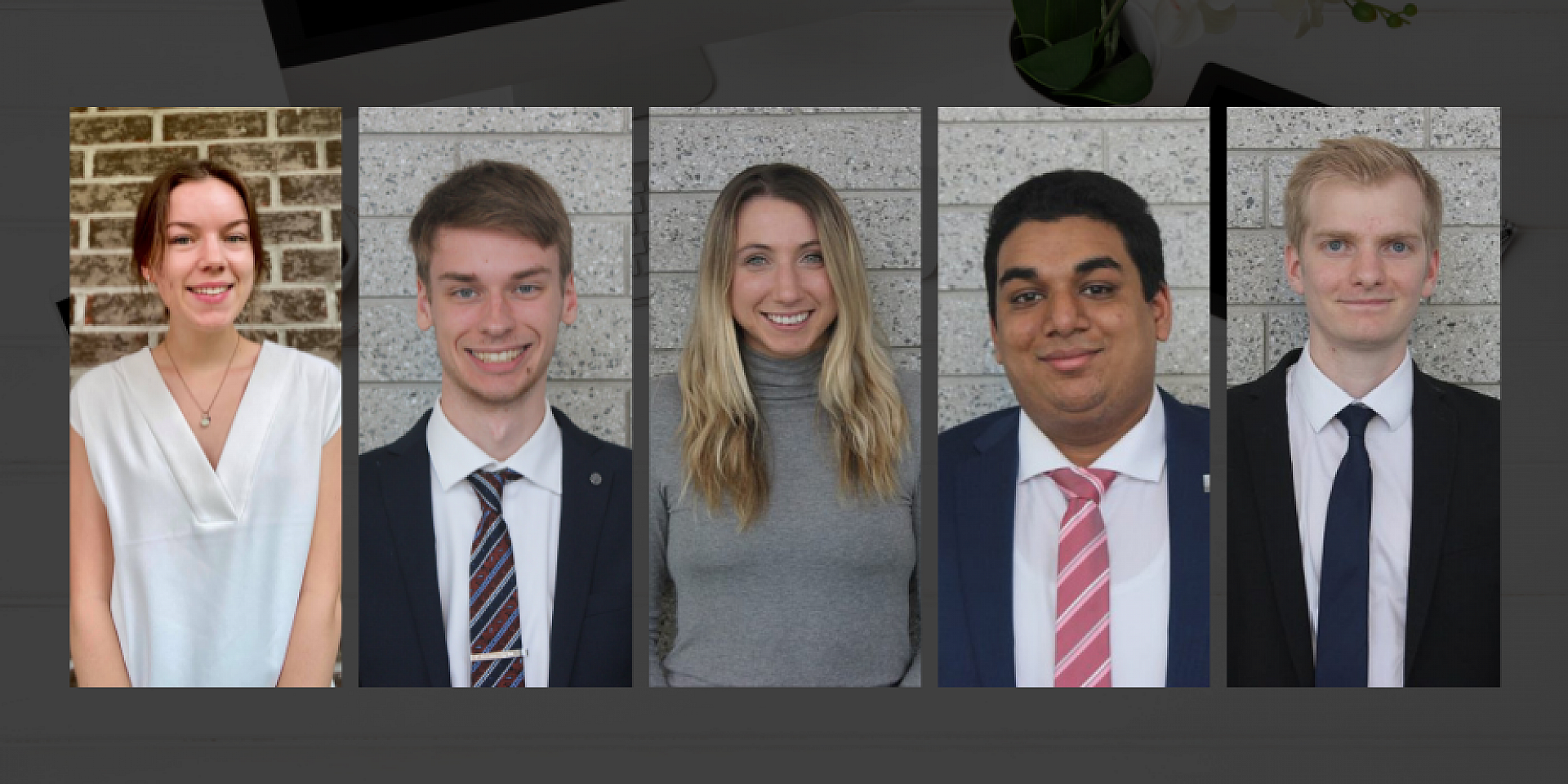Telfer PhD candidate, Peyman Varshoei, started his doctoral journey in 2017 when he moved from Iran to Ottawa. Since then, he has started on his three-chaptered thesis for his PhD in Management with a Specialization in Health Systems. He met his wife (Elmira Mirbahaeddin) who is also a doctoral candidate in the same PhD program at Telfer School.
The focus of his research relates to various medical scheduling problems which includes patient appointment scheduling, staff scheduling, clinic block scheduling, home-care nurse scheduling, routing, and more. After the onset of the COVID-19 pandemic, the importance of his research became evident more than ever. His research contributes by strengthening pandemic-wave recovery through preventing extreme back-log of elective surgeries cancelled during the earlier waves of COVID-19.
Becoming a Telfer PhD Student
Peyman was connected with the Telfer PhD program when he was consulting a graduate student who was working on her master's degree project in Iran. Through this project he was introduced to professor Jonathan Patrick.
“[Professor Patrick] encouraged me to apply to the PhD program at Telfer School, I heard about Telfer before, and I knew it has generous packages for international students and also has powerful computer labs that could facilitate my research” explained Peyman. “It was a pleasure for me to apply and be admitted to Telfer.”
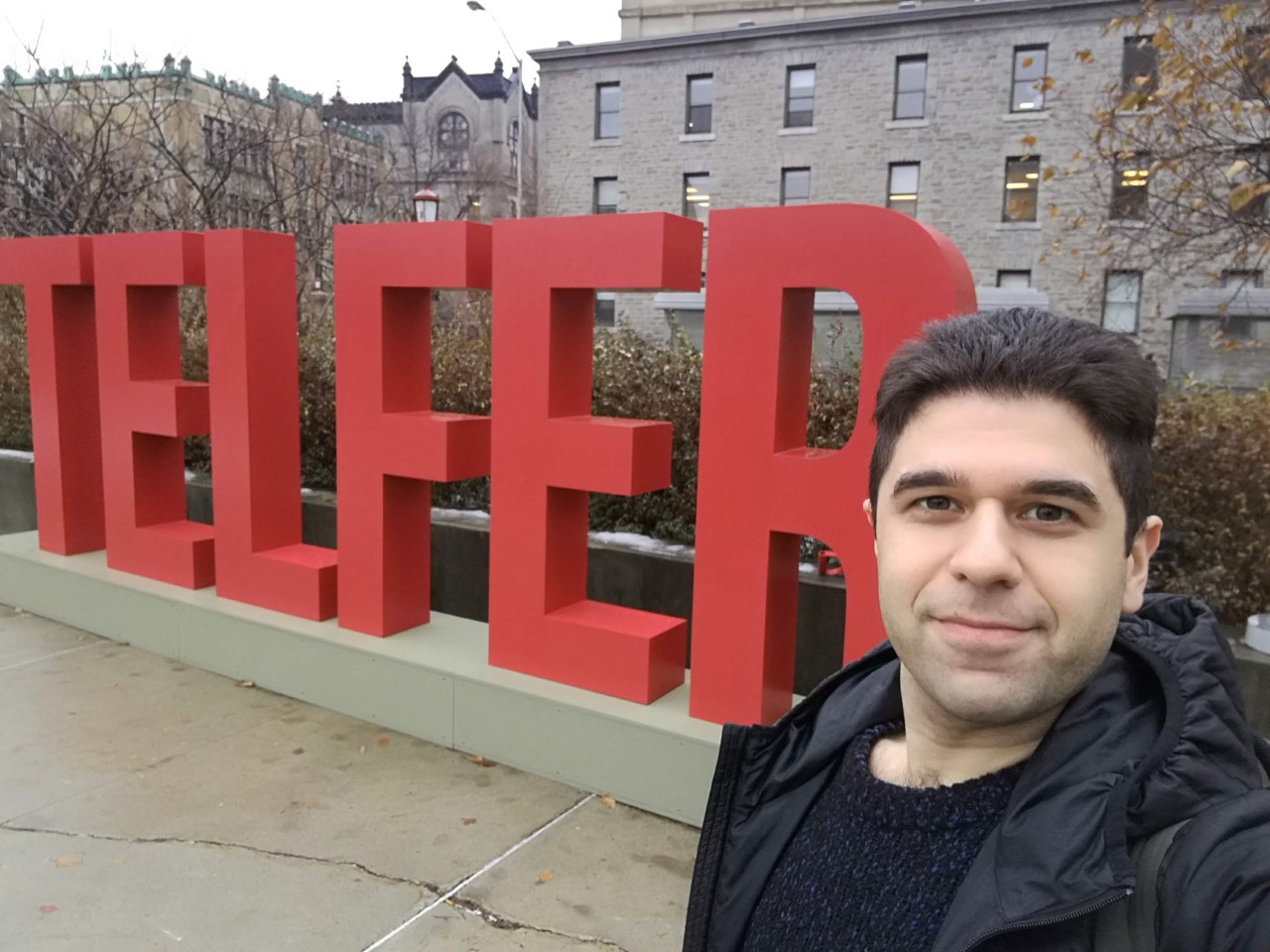
Thus Peyman began his PhD journey and is now starting his fifth year in September 2021. Peyman has previously completed his Bachelor’s of Science in industrial engineering in which he graduated with distinction and was invited by the same school in Iran to directly pursue a master’s degree in Systems Engineering. This engineering background provided him with an interdisciplinary perspective and the required methods and skills to work on complex mathematical problems, particularly in healthcare analytics.
“I chose to do my PhD in Management with the Specialization in Health Systems because I did some research in that area during my undergraduate and graduate years in Iran. I was searching for opportunities to expand my knowledge in advanced analytics techniques, and to also explore the connections between my area of interest with health systems management.”
His educational background and eagerness to learn drove him to research newer topics such as business optimization and medical scheduling.
“I have always been passionate to work on innovative ideas that optimize health systems. So, choosing this PhD program and focusing on the optimization of scheduling in health care services gave me the opportunity to enhance my skills and apply my knowledge to health care problems in the real world.”
Learning and skills acquisition
Peyman has been keen on developing his ability to learn how to learn. By challenging himself with new topics and problems, he managed to exercise many learning curves.
“I’m learning things everyday non-stop. I need to improve my skills regularly, so I am trying to explore new ways that I can quickly learn. I am happy with everything that I have explored throughout my research,” he states as he emphasizes the importance of getting out of his comfort zone to enhance and advancehis skillset while obtaining his PhD.
Peyman faced many challenges that he overcame by adopting an open mind with curiosity. He explained “I explored a lot in the literature because I didn’t have a broad background in optimization. My background was mostly in simulation modeling” he adds: “I had to find a way to solve new optimization problems during my research. For example, in my first chapter, I had to figure out how to make a trade-off between two or more conflicting objectives through connecting a stochastic and a deterministic optimization model and spent days figuring out how to do it. I learned new programming languages as well as several solution methods for addressing the problems that I am working on.”
Working with supervisors
His main resource for obtaining new knowledge, he said, was access to professors and researchers who were knowledgeable and willing to advise him during his research in the areas that he was interested in. In addition to his supervisors, Peyman had the opportunity to engage in research and teaching activities with the other Telfer faculty members. Therefore, he has been able to further expand his experience through various research projects as well as teaching undergraduate courses. Peyman refers to the faculties at Telfer: “they made my PhD program even more fruitful by generously sharing their professional experience and knowledge in research with me.”
Professor Jonathan Patrick, also commented on Peyman’s enthusiasm towards learning: “One of the real pleasures about working with Peyman is his willingness to take on new tasks and learn new methods and/or software. He is not afraid to tackle new methodologies and readily asks for guidance if he is uncertain. These characteristics of his will stand him in good stead as he continues in his career as a researcher.”
During the first two years of PhD, Peyman went through his coursework. He explained: “My supervisors supported me in many ways, for example, in choosing the right method courses and the other ups and downs that an international newcomer PhD student from another educational system might face with. Moreover, they guided me to the additional skills and methods that I needed to prepare for my comprehensive exam and my thesis program of research. I believe this individualized support has been of great importance for the progress of my thesis research.”
Being a PhD Student During COVID-19
Researching a Pandemic from Home
When the pandemic hit in 2020, Peyman, like many, was unsure how his education journey would continue. However, it turned out to be the pandemic itself that led him to develop what would be the first chapter of his thesis.
“While I was exploring different home care problems in the literature to start developing the first optimization problem in my thesis, the pandemic started. We identified a new problem about admitting elective patients to hospitals during pandemics, which later became my first chapter. The problem was how to admit elective patients in a hospital during a pandemic while ensuring the hospitals are ready to empty some capacity for pandemic patients in case of a surge in the pandemic-driven demand” explained Peyman. This problem became evident after the first wave of COVID-19 hit and hospitals faced massive backlogs of elective surgeries because of the cancellations.
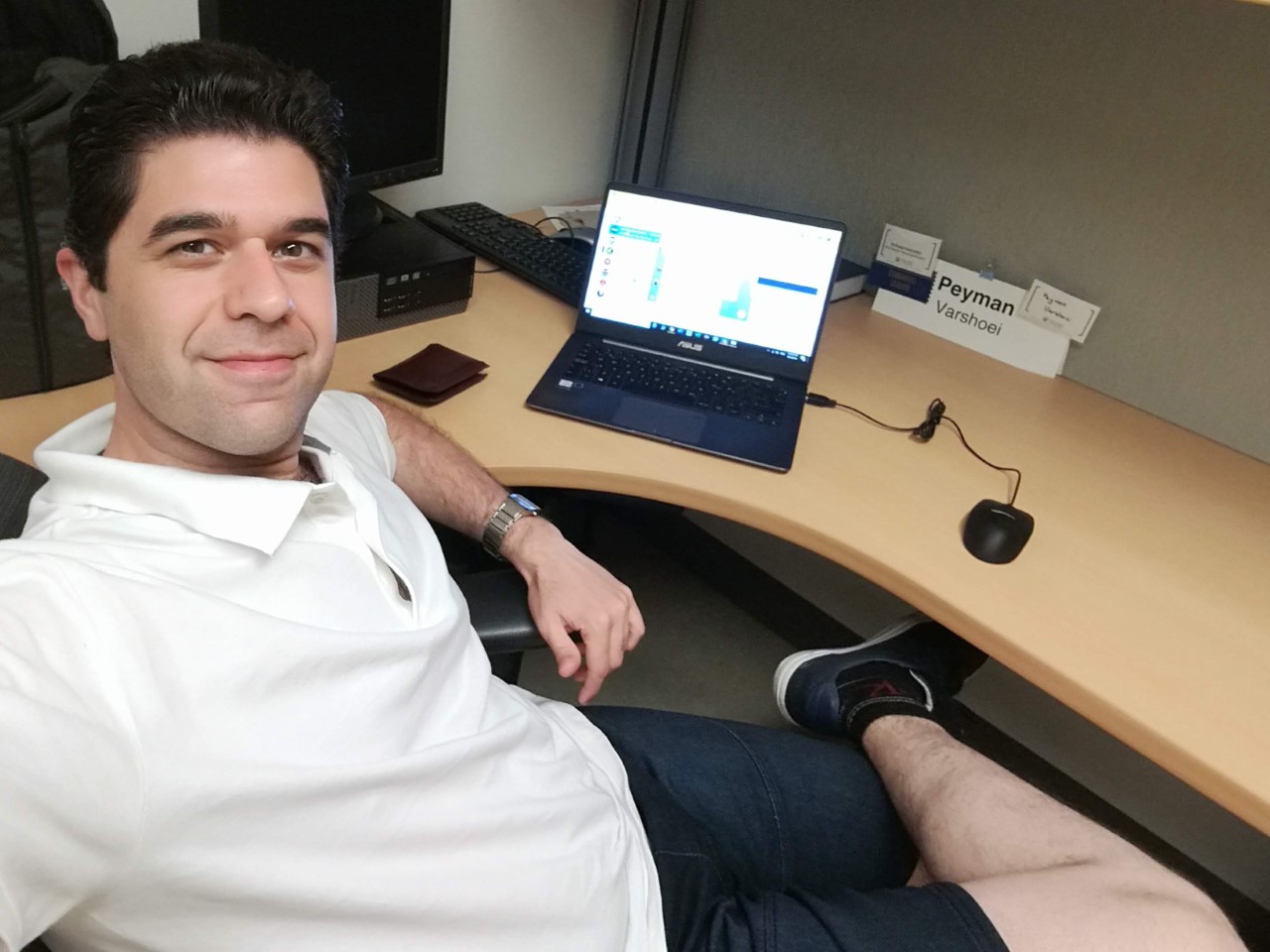
“What happened during the first wave was a new situation for the hospitals because they were afraid of the coming COVID-driven demand and they emptied lots of beds and resources for a predicted demand that never happened during the first wave. So, their resources remained under-utilized while they had cancelled many elective procedures and caused a massive backlog of elective patients.”
Peyman put his focus on this new topic, despite the uncertainty around the topic and its solution method. His COVID-19 research was pursued in pandemic-style: at home.
“I was at home all the time during the pandemic. I followed the news that was relevant to my research.” shared Peyman. He specified that because it was a novel problem in the literature, he had a lot to delve into when working from home. “I read the news a lot, I searched for keywords and specific news articles. I worked hard to develop a new methodology.”
Eventually, he was able to develop a solution to this issue: an elective patient scheduling policy that would allow admitting patients during the pandemic waves while ensuring the hospital can empty enough beds for pandemic patients over a short warning period.
Managing the Impact of Future COVID-19 Waves
With his research Peyman hopes to lessen the negative impact of COVID-19 and other pandemic waves in the future.
“We may see more covid waves later. In the future, we can benefit from the lessons learned during the first wave and I believe the findings of my research can help hospitals to minimize cancellations.” he explained.
The model would help hospitals to adapt quicker and more efficiently than the first wave of COVID-19, allowing for a faster post-pandemic recovery.
Participating in Conferences
When Peyman progressed with his research and developed the structure for the forthcoming chapters, his supervisors invited him to present the findings of his first chapter at the Canadian Operational Research Society (CORS) 2021 annual conference. “This was a great opportunity for me to share this research and to get feedback from the participants and experts in this area. Happily, we received encouraging comments from the audience, especially about the novelty and timeliness of the topic as well as the innovative method that was developed” He said. Peyman also presented in 2021 annual Canadian Association for Health Services and Policy Research (CAHSPR) conference.
Finishing a Thesis
Peyman states that the main goal of his research is “making a balance between the needs of patients and the utilization of health-care resources and to find an optimal/near-optimal solution”. He keeps that in mind as he works towards finishing the next chapters of his thesis.
His next steps will include delving deeper into solution methods for the complex problems he is trying to solve in home-care nurse scheduling and routing problem and cancer clinics block scheduling.
“I am going to develop a heuristic/metaheuristic method that is able to provide a good quality solution in a reasonable time, which is what operations research analysts do when it is impossible to reach the optimal solution for combinatorial mathematical problems.”
The impact of his research is not only applicable now more than ever but could change the efficiency of planning and scheduling within the Canadian health care system for the better.
